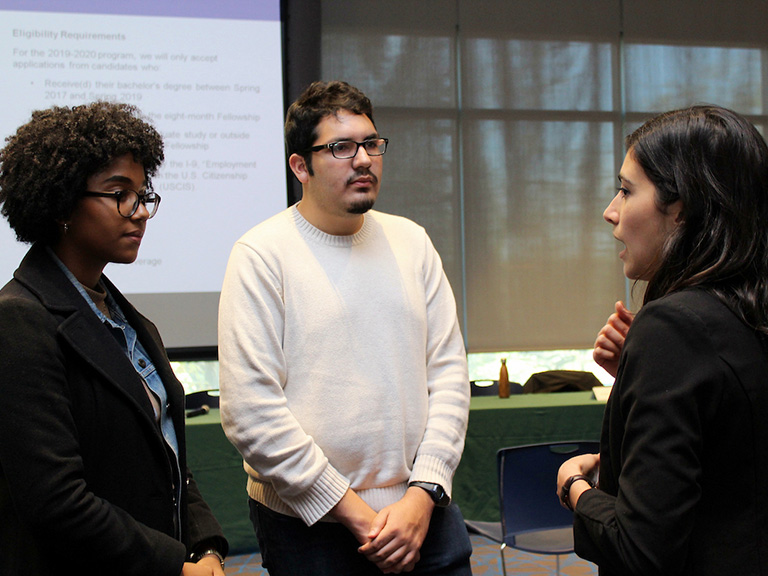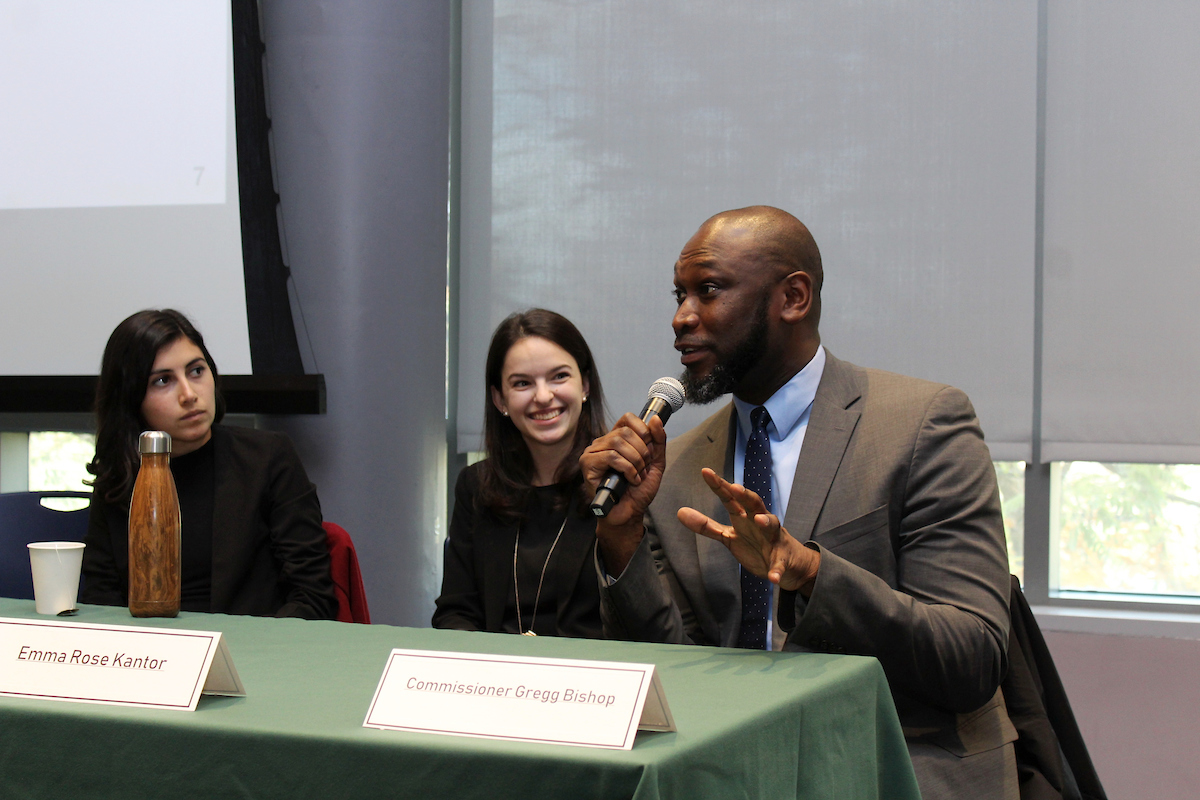 Members of New York City’s public sector recently came together in the Kelly Commons to inform students about the impact that working in the public sector can have on the lives of New Yorkers.
Members of New York City’s public sector recently came together in the Kelly Commons to inform students about the impact that working in the public sector can have on the lives of New Yorkers.
This event was moderated by Robert Walsh, the College’s senior advisor for strategic partnerships. Walsh began his career in public service as a NYC Urban Fellow, a program he later directed. He also spent 12 years as the commissioner of the department small business services under former mayor Michael Bloomberg.
“We target undergraduate or graduate students who have one or more years of community planning experience, including community programs through the school such as student government or community based clubs,” Walsh said.
Walsh then introduced Gregg Bishop, who leads the NYC Department of Small Business Services (SBS). Bishop explained that his department helps unlock economic potential and create economic security for all New Yorkers by connecting them to good jobs, creating stronger businesses, and building thriving neighborhoods across the city.
 Bishop then introduced two high ranking members of SBS, Lara Birnback and La-Toya Niles, who oversee the Neighborhood 360° Fellows Program. This program is designed to empower community based organizations with the tools and resources necessary to strengthen the city’s commercial districts and create the conditions that attract private investment.
Bishop then introduced two high ranking members of SBS, Lara Birnback and La-Toya Niles, who oversee the Neighborhood 360° Fellows Program. This program is designed to empower community based organizations with the tools and resources necessary to strengthen the city’s commercial districts and create the conditions that attract private investment.
Following Birnback and Niles, Emma Kantor spoke about the NYC Urban Fellows Program. This nine-month fellowship combines work in mayoral offices and city agencies with volunteer service opportunities and a seminar series that explores current urban issues impacting public policy.
Lastly, Elaine Roghanian, the director of the Coro Fellows Program in Public Affairs, spoke about the opportunities offered by her program. Using the city as a classroom, Coro Fellows learn through interactions with private, public, and nonprofit decision-makers and work as a group to develop critical thinking, analytical, governance and leadership skills. Coro Fellows join a community of engaged alumni and leave the program with an understanding of how New York City works and with the knowledge and skills to make it better.
by John Dove '18